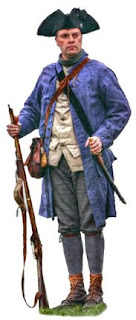
After serving in the British army during the French and Indian war he returneds to his favorite labor that was plantation at Mount Venom. His plan was to remain there he enjoyed his work he could supervise his crops, manage the slaves and play cards.
After this he decided to join the House ofn Burgesses but was defeted on his first attempted to be elected. He tried again in 1758 and won, he took his place in Williamsburg thinking that he was going to follow his lead of the British government. the burguesses were thinking about taxing him but the parliament ignored this, so he was memeber on the unhappy members the king sent back to their homes.
He was send to the First continental congress, Washington returned to northern Virginia with a mission, organize the groups of the militia and he also wanted to be elected to the Second continental congress, he was succesful on both of his goals.
There were both of groups patriots and loyalists he decided to get together with the patriots.
He join the Gran American Army which they were fighting for their own freedom and they thought that only George Washington could get them there.




